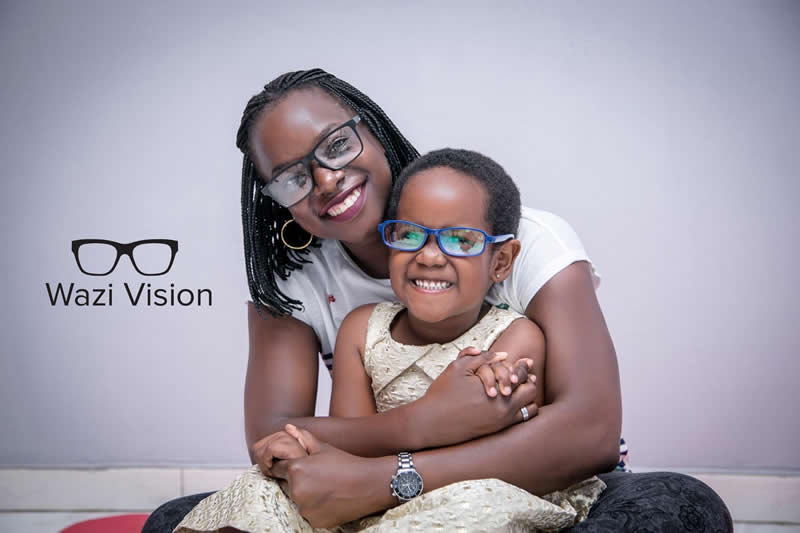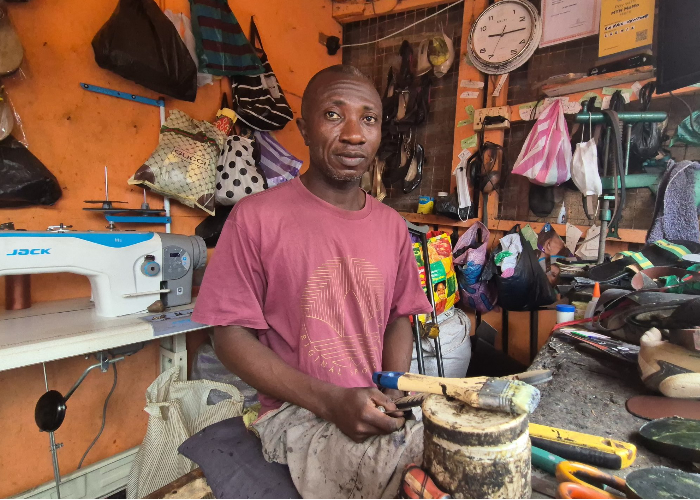Meet The Woman Behind Wazi Vision, The Recycled Plastic Glasses
- Home
- Meet The Woman Behind Wazi Vision, The Recycled Plastic Glasses

Meet The Woman Behind Wazi Vision, The Recycled Plastic Glasses
Brenda Katwesigye is the founder and CEO of Wazi Vision Limited, a company incorporated in Uganda that builds eyewear and construction material from recycled plastic. Brenda is passionate about creating sustainable and affordable solutions for critical health care and housing challenges, so we talked to her about the challenges of providing eye care to children in Uganda and how she’s contributing to solving these issues.

What motivated you to start a business in eye care?
I saw a gap in the eye care space and an opportunity for positive impact. The cost of eyeglasses in Uganda is approximately US$150. Yet, the average household income is $80. Most people there cannot afford eyeglasses and there is a need for affordable alternatives.
What is the current situation of refractive errors diagnosis among children in Ugandan communities?
Children in Uganda within the urban areas (those whose parents can afford) visit mainstream optical centres for eye tests. In rural areas, most children cannot afford it, and if they can, the family needs to travel long distances to urban centres and towns to have eye tests done.
Why did you decide to use recycled plastic for your glasses frames?
Waste plastic is all around us, it’s easy to find and the raw material barely costs anything. In addition, I wanted to do something sustainable and contribute to a cleaner environment.
How important was it for you to involve local female artisans for the production of your product?
Hiring female talent is at the core of the company we want to build. Women are at the forefront of the development of their families and children. Hiring female artisans meant that we would not only contribute to skilling them, we would also economically contribute to their livelihood and to their wellbeing as well as that of their families.
What is the role of tech in your mission to bring accessible and affordable eye care to everyone in Uganda?
Tech is important as it will enable us to reach and equip areas with no optical services with an eye testing solution. The idea is that people will be able to perform an eye test even without the need for an optometrist. Our app will also help us get test results in real-time so as to provide glasses quickly.
How do you manage to bring eye testing closer to people who live in remote areas?
We perform community mobile testing drives where we go to these remote areas and carry out tests on various people, especially in schools. In the future, once we achieve accuracy and approval of the virtual reality (VR) technology, we will be able to use the VR to carry out tests rather than physically using conventional methods.
What are the future plans and aspirations for your company?
We plan on growing our reach and sales across Uganda. We have already started shipping to Rwanda and continue to study the market. Ultimately we hope we can be able to sell Wazi glasses across the world, though our first target is Africa.
What are your biggest challenges?
Our biggest challenges are with manufacturing inefficiencies. There have been times where a lot of glasses have gone to waste because of manufacturing defects arising from inefficiencies such as power going off in the middle of production. In addition, expert labour in my country is not readily available and when it is, it is very expensive especially within the manufacturing sector.
What was the most limiting belief?
Most people did not believe our frames were durable or strong enough. We needed to prove ourselves a lot.
What was your biggest breakthrough?
It was making our first sale. For me, that is a major breakthrough because it’s the first sale that led to the next and the next. Referrals have helped a lot. People who buy our glasses make an effort to refer to someone else.
What helped you the most?
We received a lot of support both financially and morally. We were financially supported by the US African Development Foundation and we also got some money from the F-Lane Accelerator that has helped us a lot. Additionally, my mentors have been very instrumental in keeping me going even when times are tough.
Can you give us 3 tips for other women who want to level up?
- Believe in yourself. You can do it
- Perfect your product. Nothing makes a better pitch than a good product.
- If you receive help, pay it forward too. Support another woman in your circle.
Source: cleantechnica.com
- Share
Classic Ghana
Classic Ghana brings you into a fun world of arts, entertainment, fashion, beauty, photography, culture and all things in between. Let’s explore these together!







